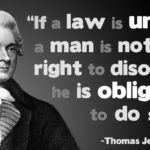Global Divisions:
Rather than all of the many divisions we have currently in the world we’ll side step a few of them as shown below. For instance, continent and country will no longer exist as a territorial division. Yes, countries will retain some rights in the new world but it’s not an actual division used administratively in the Empire.
World
* Slice *
[State or Province]
{City}
– Neighborhood –
: House or Family :
Let’s explain these briefly.
One World, One People under the Sun [mjn]
The whole world is considered one single entity. What is done is to benefit all of humanity, the global family if you will. The Imperial Palace will serve the affairs of the entire world and help humanity as a whole, with various ministries being active as well as department heads managing global projects and endeavors. Ministries include but aren’t limited to the following: Transition, First Contact & Exo Affairs, Territorial Expansion, Citizenship Affairs, PR, Embassies, Diplomacy and Foreign Affairs, Activism, Spirituality, Labor, Linguistics, Culture and Arts, Castes and Progression, Infrastructure and Justice.
Leaders: Most of those serving as part of the Imperial Government will be of high caste and position together with any who serve as their staff. Almost all of the royals with unique titles will be globally active. Most of these will earn their places via merit; though some will be appointed from people who serve in lower positions over a period of time. Some may be elected by the people directly; although only from a pool of qualified individuals. In many cases they should fulfill certain requirements and show competence as well as specialization in their fields.
*The Slice* [tjn]
However, in this large area smaller divisions help. A slice is a piece of a continent. It’s usually around a dozen countries in a geographic area. Several high profile leaders will lead things there. Due to these areas being clustered you can be assured each of them have a number of things that need to be addressed keeping the respective leaders and their staff quite busy. While I had these much larger in the first draft I like this set up better, where we have 16 of them across the planet. They will all get cool names and we’re going to use them in a lot of administrative stuff.
Leaders: These are all elected by the people. Think one President and two Vice Presidents. One of the Vices runs with the president, the other is either directly elected by the people as well or may simply be the second runner up in the election. These three will divide the responsibilities of the office in regards to “Cultural / Imperial, Foreign Affairs, Domestic Affairs”
(The State / Province) [gjn]
The next division is a state or province. Almost all countries are made up of multiple states. These will provide a smaller regional division that can be used for more localized issues. Look for Nobility being active there. There will also be Liaisons who tend to run affairs over multiple cities coordinating with the local leadership in each of them as is needed. Most of them will handle between 4 to 5 cities in a general area. Many Empire projects, including most territorial expansion and citizenship is governed on a province / state level. Please note, while we may list some things on our website by “country” we really DON’T have that division in active use for many things in the Empire.
Leaders: Some appointed and some set by alliances, while still others are elected. A few progress into this position from city leadership. Here it’ll run the gamut as provinces and their needs vary greatly as will our resources over time. For example, in some areas a traditionally elected leader may retain Empire leadership over the area too.
{The City Cluster} [zjn]
Then there is the City division. Here is where a good chunk of the power lies. Every city has it’s own rights and it’s own way of being ran. There are a number of things to address, so the city administration will make sure it gets done. Usually a noble will preside over the city’s affairs with a staff to help out. These hold a considerable amount of power and have a lot of say in how things are done locally. However, all of them are bound by Empire base law which will affect their governance. This will be harder in some areas where changes are more difficult to affect; especially if local culture runs counter to live and let live. They also create local resources, encourage sharing, provide jobs, call to improve infrastructure, settle disputes, run nezka in that city, encourage culture and arts, deal with crime and issues which affect the local populations. In many cities they may have a program to sponsor a city further away that may lack infrastructure and opportunity. If you live in a city with Hanian administration, they’ll determine citizenship requirements for provisional citizens. All of them may differ in their policies but they always rule by live and let live. ALL work together because we’re one world and one human family.
Leaders: One of these is appointed by the Imperial Palace, the other two are elected by the people. They share authority.
– The Local Neighborhood – [kjn]
Lastly there is the neighborhood. In each city there will be smaller subdivisions where people usually live in a subdivision or along a street or two. This is the neighborhood division. This is also any small colony or settlement; which may not be anywhere near a city to fall under their direct leadership. Some of the locals may provide neighborhood watch, city administrations may get citizens to make share depots available and many other things are handled on a very local level. A lot of this can be coordinated from the nearest city. Various lower Lord and Lady types usually preside over neighborhoods. Some jobs, churches and even schools may set themselves up as “neighborhoods”, but their services will differ greatly from the residential neighborhoods.
Leaders: Set by the neighborhood and the people in it; we have no say in these matters.
: Household / Family : [djn]
Within this smallest division is the Household / Family. We say household because not all may be traditional families. Some people may create households of friends, those who share resources or people who work or study together. No matter how it’s set up it’s an extra small division found in the neighborhood level.
Leaders: Set by the Family / Household, we have no say in these matters.
This is Global Locality:
We call this global locality. It’s having a global focus while keeping power in local hands. In many cases growth will occur on very local levels, but major change gets affected by multiple cities working together all across the world. Due to a large focus on local and city administrations it’s very possible to hold control and authority in multiple places, even if the rest of the world isn’t quite ready to get it done yet. These administrations are for the most part auxiliary administrations. They often will boost local leadership that’s found traditionally. Yet in some cases for example where government breaks down or where we gain more popularity than the traditional leaders they’re always able to step up collectively as needed. With a variety of ways of how leaders come to these positions, we’ll have the stability of a monarchy with the flexibility and freedom of a direct democracy. There are enough checks and balances to keep us both efficient as well as safe from corruption. Over time as we try different stuff we’ll find the best ways to do everything; so expect some changes over time. However, we’ll always have some people appointed while others are elected by the people directly.
* mjn * tjn * gjn * zjn * kjn * djn *
Draft – Some things in regards to leaders may still change here, pending creation of our Constitution and various local test runs.














